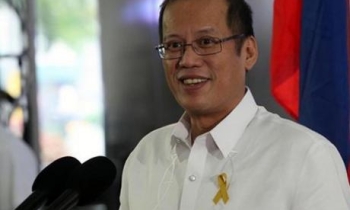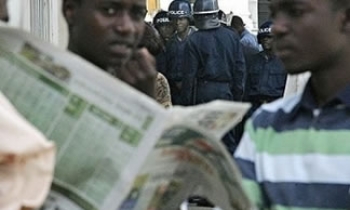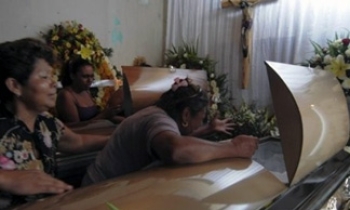SUDAN-CHAD BORDER (CNN) -- One of the greatest difficulties of reporting from Darfur is the size, scale and scope of it. Darfur itself is about two thirds the size of Texas. It's a large area, and it doesn't have a road infrastructure like Texas. That's for sure.
There are a lot of dirt roads, but not a lot else, and the big problem is security. Getting around to cover this story is a major problem. Here, the U.N. can't drive around in many places, so they have to fly. They go by helicopter or they go by plane.
In Chad, the humanitarian situation is reasonably stable. It's woefully short of funds. But covering the story here is very much like it is in Darfur. There are only dirt roads to get around on. Travel is slow.
From talking to refugee leaders and U.N. officials, we know that the janjaweed militia have people active in this area, and there are also rebels from the Sudanese Liberation Army across the border and in Chad -- so one has to be very careful about security when driving around.
In terms of access in the refugee camps here in Chad, it has been very good. The government has given us full access. We can go where we want, when we want and talk to whomever we want.
It's different in Darfur, where the Sudanese government heavily censors journalists coming into the country. We were only given permission to travel with U.N. humanitarian chief Jan Egeland on his mission.
We weren't given permission to travel independently in Darfur or to go to refugee camps of our choice. One of the problems with covering the story in Darfur is that there are huge restrictions by the Sudanese government on what journalists can do and where they can go.
You can't go to Darfur without permission from the Sudanese government, and then you can't leave the capital, Khartoum.
I've covered stories in more dangerous places, like Iraq, but security is a key issue to covering Darfur. Where we've been in Sudan and where we are in Chad, I think there are people who would perhaps like to steal your vehicle and wouldn't be afraid of shooting you to do that.
They shot a press worker in Chad just last week to steal her vehicle. She's in critical condition at a medical facility in Paris, France.
You are still able to get around the country, but don't be fooled by the splendor of nature -- the monkeys, camels and colorful birds. It's still a dangerous place.
Out there in the bush is the janjaweed and the possibility of attacks. I would say that compared to Iraq this is a safer place, but the dangers are different. In every conflict, the dangers are different.
As we've seen here in crowds, tensions can run high. A crowd can go from being sort of loud and peaceful to being angry and vengeful within a matter of seconds.
In Sudan, we saw two types of crowds. We saw a crowd that appeared to be organized by the government that was out to tell Jan Egeland that they didn't want the peace deal implemented by U.N. peacekeepers coming into the country.
And we've seen refugees in the Sudan camps who have been there two to three years, saying they do want international peacekeepers because they don't have faith in the African Union peacekeepers who are supposed to keep them safe right now.
They don't trust the Sudanese government. They say they get arrested when they go into town.
When you're in a crowd here, I think you really have to watch people's facial expressions, you have to watch their moods, you have to see if anything is changing their mood.
If one person turns in a crowd -- and this is the same in Afghanistan, Iraq and many other countries -- the whole mood of the crowd can shift in seconds. You have to be aware of that.
In Chad, the refugees, even those who have been here three years or more, are remarkably peaceful. They recognize and respect everything the international community is doing for them.
One of the refugee leaders in one of the camps told me today, "We know there's no one else out here who is going to provide security, who's going to help us and take care of us other than the international community."
You drive past people here on the roads -- little kids, adults -- they wave at you. They're happy to see you. When I move around in the refugee camps, in the crowds there, the little kids want to come up and touch your hand, touch your arm.
You look different to them and I think they want to see if you're made of the same stuff. They want to shake your hand and say hi.
Most of the time in the camps here, at least in Chad, the atmosphere is relaxed, but obviously, they'd like to be back in their homes.









